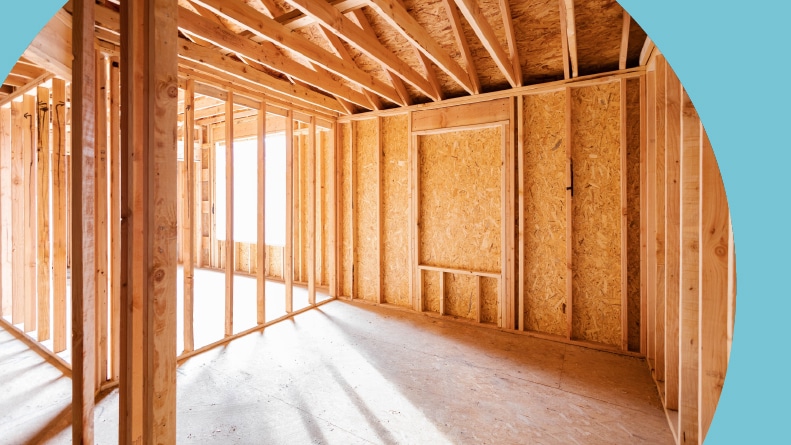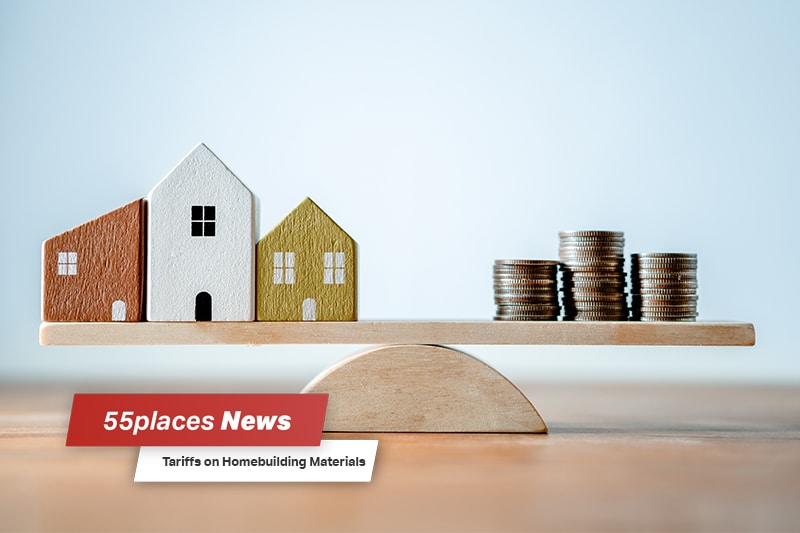How will tariff hikes affect the U.S. housing market? As the real estate market prepares for a potential shift in 2025, new tariffs could significantly impact 55+ homebuyers—particularly those looking for new construction. These tariffs are expected to target materials like lumber and steel as well as various homebuilding products sourced from China. This may lead to rising construction costs and delayed projects.
For active adult buyers considering a move, these economic factors could influence whether to buy new, purchase an existing home, or even explore rental options. Let’s take a deeper look at the situation and your options as a 55+ homebuyer.
Rising Costs in New Home Construction

The new round of tariffs is expected to increase the price of key construction materials. Historically, tariffs have had a noticeable impact on the housing market. The National Association of Home Builders (NAHB) reported that previous tariffs on Canadian lumber alone added an average of $9,000 to the cost of a newly built home. The added costs could be even greater with the proposed 2025 tariffs expanding to more materials.
According to Chad Walker, Chief Revenue Officer at 55places.com:
“Homebuyers in the 55+ market are extremely cost-conscious, and any increase in materials pricing directly impacts affordability. These new tariffs could mean higher home prices, fewer incentives from builders, and longer wait times for move-in ready homes.”
Tariffs on Steel and Other Materials

Many essential homebuilding materials, from electrical components to cabinetry and flooring, are either produced in China or rely on raw materials imported from China. With tariffs increasing the cost of these goods, builders will have to absorb the cost or pass it along to buyers.
Vikram Bakshi, Vice President of Finance at 55places.com, explains:
“Steel is a fundamental component in modern home construction, particularly in appliances, structural framing, and even certain types of roofing. Any increase in tariffs will make these items more expensive, adding to the financial burden on homebuyers.”
Options for 55+ Homebuyers

With the possibility of rising home prices due to tariff-related cost increases, 55+ buyers will need to explore alternative options. Here are some other homebuying avenues to consider:
- Purchasing an Existing Home: Unlike new construction, existing homes will not be directly affected by tariff-driven cost increases. Buyers looking to move sooner rather than later may find better deals in the resale market.
- Considering Rentals: Renting in a 55+ community could be a smart short-term solution while waiting to see how tariffs impact the market. Many communities offer resort-style living without the long-term financial commitment of purchasing.
- Exploring Builder Incentives: While prices may rise, some builders may offer incentives to offset increased costs. It’s essential to work with a knowledgeable real estate agent who understands the market and can identify the best deals.
Looking Ahead
When considering how will tariff hikes affect the U.S. housing market, the long-term impact remains uncertain. However, prospective buyers should be aware of potential price increases and extended construction timelines. Staying informed and working with experienced real estate professionals can help buyers navigate these challenges and make the best decision for their future.
For more insights and expert guidance on finding the right 55+ community, contact 55places.com.







